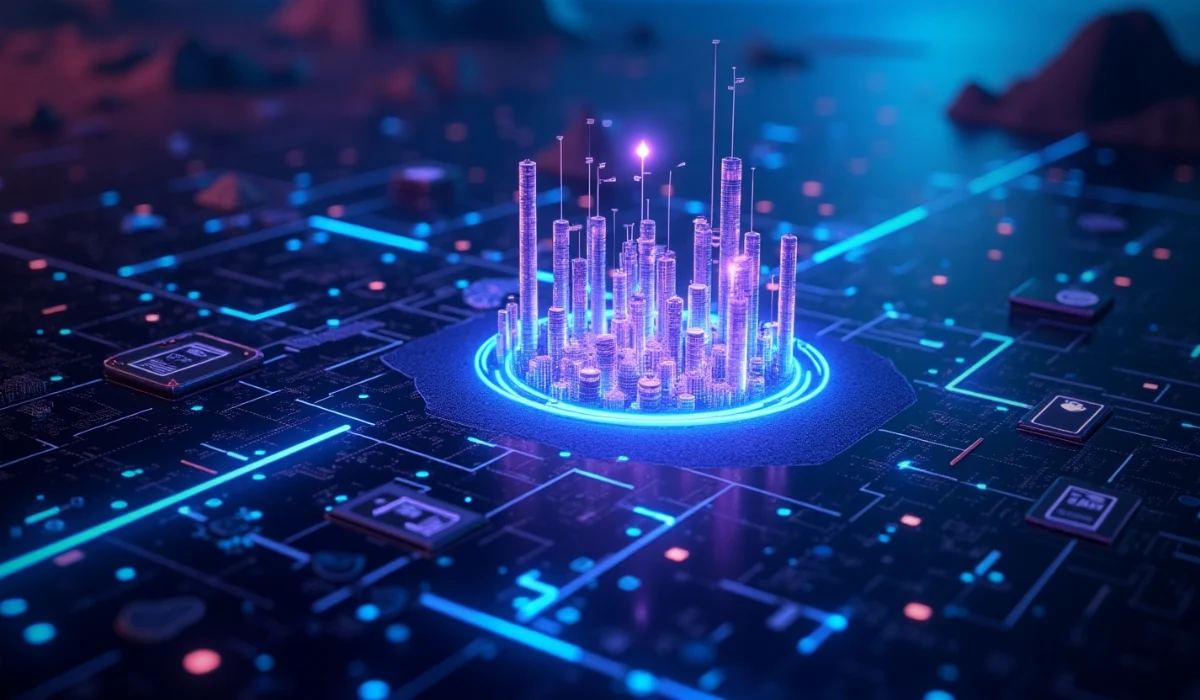The sudden emergence of blockchain technology helps to build a new software application called Decentralized Application (DApp). Day by day, DApps are gaining popularity and they vary how people communicate online. Decentralized Applications are programs or digital applications that operate on a computer’s peer-to-peer (P2P) network or blockchain instead of on a single computer.
This article will analyze what Decentralized Applications (DApp) are, their benefits, and the major use cases of the DApp.
Decentralized Applications (DApps)

A Decentralized Application (DApp) is a community-handled software application that operates on a distributed network, and it is similar to traditional apps but has some major differences. In the case of traditional apps, the firm hosts applications such as Meta, Alphabet, and Snap Ic, while in Decentralized Applications (DApps), the host applications are typically maintained by a distributed network of participants.
Decentralized Applications (DApp) is an opening to utilizing blockchain technology in the everyday lives of society. Spotify (to access music) and Uber (to access a network of taxis) are the best real-life examples of DApps that provide individuals a way into blockchain-based programs. DApps are handled by a community of users, not by an individual or a single company, and this quality makes it tougher for people to censor them, gather sensitive data, or involve fraud activity.
DApps are framed for certain purposes in the blockchain platform, like marketplaces, Decentralized Finance (DeFi), and gaming. Decentralized Applications would require some electronic payment option that would operate on a P2P network, and this network does not need users to give their personal data, where the personal data can be hidden using cryptography.
Benefits of Decentralized Applications (DApps)
Decentralized Applications have an efficient impact on the blockchain community, especially because of the numerous benefits they present over traditional centralized applications.
- The integrity of information: the information stored in the blockchain is secure, immutable, and resistant to change due to the consensus algorithm of the blockchain.
- User’s privacy and control: For utilizing app-specific functionality, users need not provide personal data to DApps and full control of users over their assets and data, decreasing the difficulties connected with the centralized data storage.
- No Failure: There is no failure for DApps since the applications run on the decentralized network. The DApp will be available for users who live anywhere in the world at any time because at least one node of the DApp is always in operating mode.
- Censorship Refuse: Decentralized Applications are not controlled by any major authority, this results in the refusal of censorship and intrusion from corporations or governments.
On the other hand, just as any invention has advantages and disadvantages, DApps also have some disadvantages, including difficulty in usage, network congestion, regulatory barriers, high cost, and difficulty in maintaining and updating.
Use cases of Decentralized Applications (DApps)
The landscape of DApps is expanding continuously by opening its distinct categories and providing various functionalities, each serving a distinctive purpose. Some of the most popular practical uses of Decentralized Applications are given below.
- Supply chain management: DApps introduce a transparent system involving the journey of products from the creation to delivery, which can be monitored to ensure the products’s authenticity and delivery time. Further, it helps to improve the management of the supply chain activities by offering high traceability and transparency.
- Social networks: the decentralized social media channels assist the user to share and connect data without any fear regarding the central authority overseeing their activities. Hooked, a DApps platform helps to provide control over their content by avoiding censorship authority.
- Healthcare: Decentralized Application helps to store patient records securely and share them with medical experts, ensuring the patients get the treatment at an accurate time.
- Entertainment and gaming: DApps help to provide a novel approach to the ownership of assets, content creation, and player rewards, empowering a more equitable and immersive landscape for both gaming and entertainment purposes.
- Financial Service: The financial transaction process becomes more secure and simpler for both parties with the effective usage of DApps. Now, the money or other assets can be sent without any banking service or transaction fees due to the assistance of DApps.
- Education: DApps help to build a decentralized learning platform, and this allows both educators and students to experience a rich learning and teaching landscape without any intermediates.
Conclusion
In the realm of DApps in the Blockchain and Cryptocurrency, it is crystal clear that decentralization is designing our digital future. Innovative applications always bring special features and redefine the way how people interact with technology and currency.
Be a part of the revolution and stay updated with the ever-changing landscape of DApps to proficiently navigate the blockchain economy. The growth of a DApp-driven digital landscape implies that Decentralized Applications are not just a trend, it is the future of online interaction.

